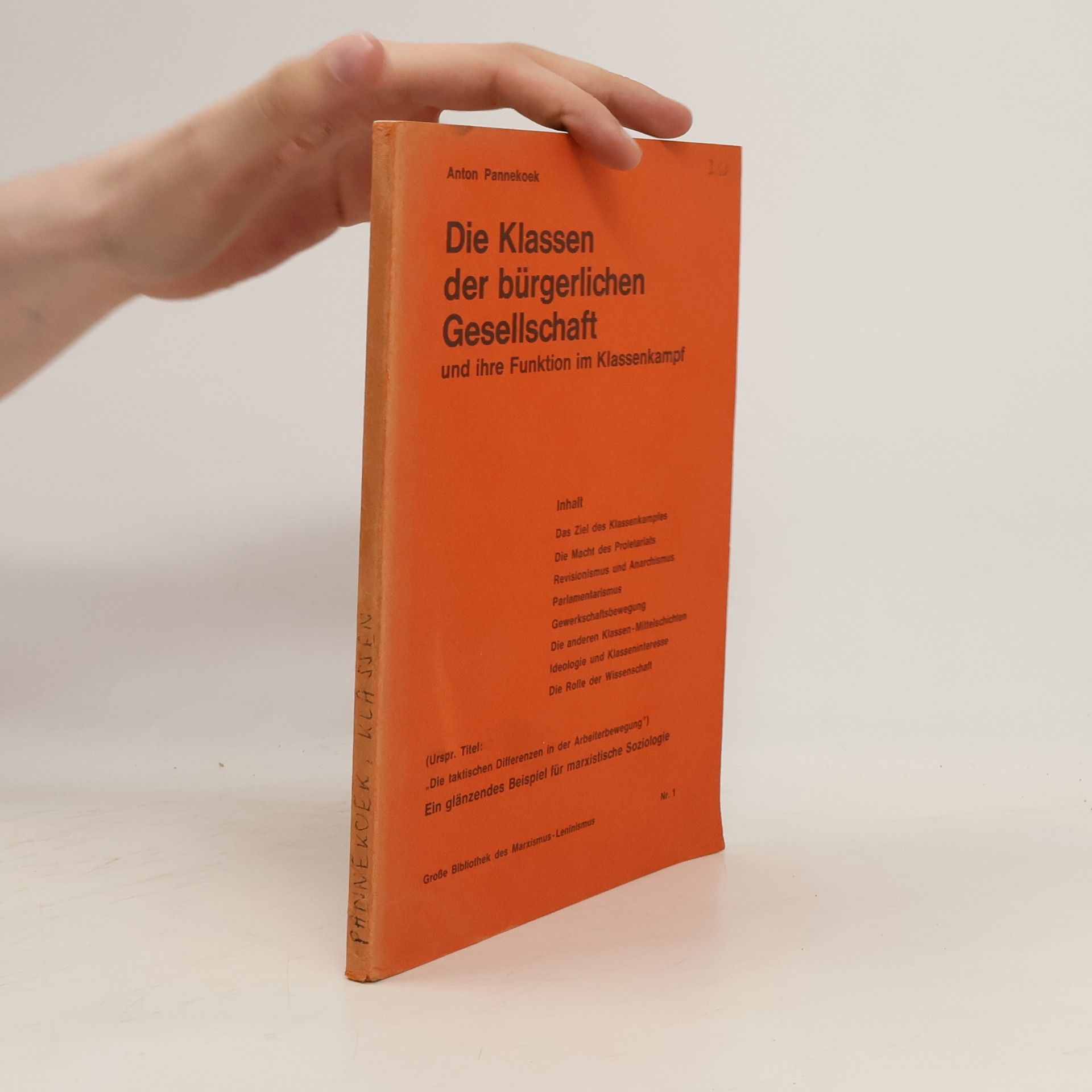A History of Astronomy
- 562 pages
- 20 hours of reading
Well-balanced, carefully reasoned study covers such topics as Ptolemaic theory, work of Copernicus, Kepler, Newton, Eddington's work on stars, much more. Illustrated. References.
Anton Pannekoek was a Dutch astronomer and Marxist theorist, recognized as a principal figure in the council communist movement. His scientific inquiries delved into the distribution and structure of stars within our galaxy, establishing him as a founder of astrophysics in the Netherlands. He later turned his attention to the fundamental nature and evolution of stars. Pannekoek's intellectual legacy, rooted in both radical political theory and pioneering astronomical research, continues to be influential.






Well-balanced, carefully reasoned study covers such topics as Ptolemaic theory, work of Copernicus, Kepler, Newton, Eddington's work on stars, much more. Illustrated. References.
Der Zusammenbruch der staatskapitalistischen Gesellschaften Osteuropas enthüllt zugleich den Geburtsfehler der westeuropäischen Linken, ihre Abhängigkeit vom sozialistischen Schein der Staatsvergesellschaftung, die nun, da es ihr scheinbar wie Schuppen von den Augen fällt, der sozialen Revolution den Rücken kehrt und linksliberal verendet. Diese Neuveröffentlichung rätekommunistischer Schriften ruft in Erinnerung, daß es dazu immer eine Alternative gab.
Arbeiterräte: Das Ziel - Der Kampf - Der Feind - Der Krieg (1944) - Der Frieden (1947) Lenin als Philosoph - Kritische Betrachtung der philosophischen Grundlagen des Leninismus (1927-1955)
Texte zur sozialen Revolution II
Inhalt: Lenin als Philosoph bietet eine kritische Betrachtung der philosophischen Grundlagen des Leninismus. Die Themen umfassen eine Einleitung, eine Analyse des Marxismus, des bürgerlichen Materialismus, sowie die Ideen von Dietzgen, Mach und Avenarius. Es folgt eine eingehende Untersuchung von Lenins Kritik, seiner Auffassung von Naturwissenschaft und Materialismus, und eine Betrachtung von Plechanows Einfluss. Die russische Revolution und die proletarische Revolution werden ebenfalls behandelt. Zusätzlich werden Texte aus den Jahren 1927 bis 1955 präsentiert, die Prinzipien und Taktiken beleuchten. Der Autor erinnert an Herman Gorter und diskutiert die Rolle der Partei, die Auswirkungen der russischen Revolution, das Wesen des Naturgesetzes und die Beziehung zwischen Arbeitern, Parlament und Kommunismus. Weitere Themen sind persönliche Taten, Zerstörung als Kampfmittel, die Umwälzung in Deutschland, die intellektuelle Mittelschicht und die Zusammenbruchstheorie des Kapitalismus. Der historische Materialismus, die Rolle der Intellektuellen, Gewerkschaften, die Beziehung zwischen Partei und Arbeiterklasse, sowie die Verknüpfung von Kommunismus und Religion werden ebenfalls erörtert. Weitere Punkte umfassen Gewalt und Gewaltlosigkeit, Staatskapitalismus, die Macht der Klassen, die Rolle des Faschismus, und die Herausforderungen in der sozialistischen Theorie. Abschließend wird die Bedeutung von Bildung und Gesellschaft, s